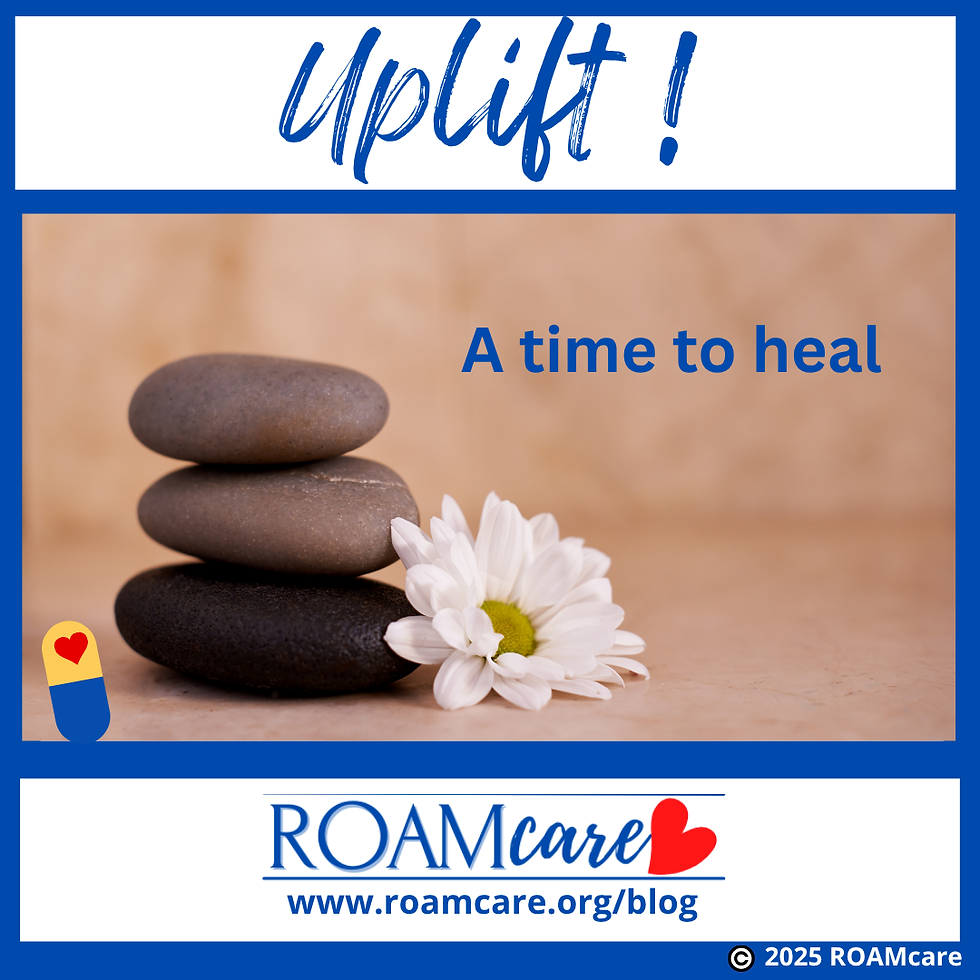Harvest bountiful blessings
- roamcare
- Nov 17, 2021
- 3 min read
Across the United States people are preparing for Thanksgiving. Unlike last year, this Thanksgiving appears to be a bit fuller of gratitude although some doubt still exists. Thanksgiving 2020 was markedly different from other Thanksgivings in any of our lifetimes and 2021 may not get us that much closer to normal, but these years are perhaps not too different from the Thanksgivings of the 1620s.
Tradition has it the first American Thanksgiving was celebrated in 1621. We don’t know if that’s true. We weren’t there. That’s the thing about tradition. Nobody around now was there when they started. We take them on faith and faithfully we follow them. We do know Thanksgiving is for families and friends to gather, to be thankful they are still friends and family. It’s a time to reflect on the year’s accomplishments, vacations, fun weekends, and all that went into getting almost all the way through another year.
The movies, the television specials, the parades, the traditions tell us of perfect celebrations of gratitude, sharing the plentiful harvest, and healing divides. Closer to reality, Thanksgiving is a holiday of love and dysfunction. It’s ok. They really do go together. If it wasn’t for the one, we’d never try to extend ourselves risking the other. If it wasn’t for the other, we’d never truly appreciate the one. They go together like friends and family, and joy and happiness. There’s always room for more, there’s always enough love for extras, and there’s always just enough wrong to give real thanks for the right. The holiday may be called ThanksGIVING but if not for what was GIVEN we can’t appreciate the joy of being special to someone and a target of other’s gratitude.
It was the autumn of 1621, harvest time tradition tells us, and those early settlers weren't celebrating friends and family, nor even a particularly bountiful harvest. They celebrated survival! Their first winter was deadly to nearly half of those who stepped off the Mayflower. Fire swept through the hastily erected living quarters and the colonists were forced to move back on board for shelter. In the spring it took weeks of negotiations to build a peaceful coexistence with the native Wampanoag people. By that year’s harvest, a hard-fought year was behind them, and the year’s most noteworthy achievement was that they did not perish. Their survival encouraged others to follow, to rethink old ways and take a chance on a new life in an unfamiliar New World and in time, the new ways became routine, and new tradition were born.

Now in the late fall of 2021, we at ROAMcare are winding up our first year’s presence on the Internet, the twenty-first century of the New World. Blogs were written, edited, re-written, and published to be consumed by readers interested in our new way of CAREing. Podcasts were produced and recorded, then distributed. The website grew and new features added. We presented our brand of respect and recognition to a small but interested group, remotely of course as most of 2021 was conducted remotely. It has been a rewarding year and our most noteworthy achievement is that we can continue our work to encourage others to follow, to rethink old ways and take a chance on new enthused respect for and recognition of others, hoping in time these new ways become routine.
And so, we continue the tradition we are told began 400 years ago. We give thanks for all we have and even though it seems like we have so much less than we want, when pressed we likely admit to having more than we need. Sometime between then and now, without knowing it, Charles Dickens may have summarized best why those early settlers would have been thankful and why today we should be thankful. “Reflect upon your present blessings, of which every man has plenty; not on your past misfortunes, of which all men have some.” Each of us has had some misfortune these past two years, yet certainly many blessings also. We all have at least one amazing story since last year’s celebration to tell at this year’s feasts. Our amazing story is you as you read these words.
It is said how we love ourselves is how we love others. We add to that our care and respect. Our friends and families are the best of ourselves. So are those many unknowns we influence each day with a word, a gesture, a smile, a sign of respect and understanding. The really amazing stories are in the special ‘thank you’s that you have been given when you share yourself with family, friends, colleagues, and those many unknows. This year, be thankful you are still here to share. And harvest your blessings.




Comments